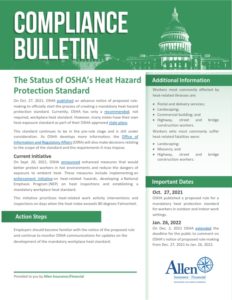Just browse through the latest true crime documentaries on your preferred streaming network and you’ll see that people of all ages and income levels are vulnerable to financial scammers. Unfortunately, as we get older, certain factors put us at greater risk. Social isolation, recent loss of a spouse or close family member, diminished cognitive abilities, and accumulated wealth can make those over age 60 especially attractive to fraudsters.
According to the FBI, there was a 74 percent increase in losses reported by victims over age 60 in 2021 compared with losses reported by the same age group in 2020. To keep yourself and loved ones safe from senior scams, ask yourself these questions before you transfer money.
Is there an urgency attached to the request for funds? Government agencies, well-known companies, and banks don’t typically ask for immediate money transfers. If you find yourself being rushed to provide cash as soon as possible, start with the assumption that the request isn’t legitimate. One way to do this is to call the institution back at a phone number you’ve used before or that you find on its website, not the contact information in the request.
Don’t give out personal information or verify an authentication code to anyone who called you, regardless of who they claim to be or what phone number appears on your screen. Even if the urgent request seems to come from a close friend or family member, you’ll want to call that person to verify their identity and confirm the need for money.
Does the method of payment make it impossible to recover your funds (if necessary)? If you’re asked to send money by mailing cash, gift cards, or prepaid cards, or transferring bitcoin, those are all red flags. Once such funds are sent they can be very difficult, if not impossible, to get back. Another sign of a scam might be a person requesting money and instructing you to pay a third party.
For example, a fraudster may claim to be from the IRS but ask you to mail cash to an individual at a residential address, claiming the person is an attorney for the IRS. A con artist in a romance scam might ask for funds to be sent to someone they claim is a personal assistant or an accountant. Involving a third party makes the transaction harder to trace.
Does this transfer raise any alarms with your financial advisor? If someone contacts you and says you owe them money and the rationale isn’t clear to you, contact your financial advisor as a trusted resource to help you determine whether the request is valid.
If you answered “yes” to any of the above questions regarding a request for money, there’s a chance you could be the victim of a scam. Depending on your specific situation, consider taking these steps:
- Stop communicating with the requestor immediately.
- If you did send any checks or wire transfers, contact your financial institution and ask if they can stop payment or recall a wire transfer.
- If you sent payment through the mail, contact the carrier service you used to report the fraud and ask if they can stop delivery. (A tracking number is helpful in this type of scenario.)
- Contact your local police.
- Report the incident to ic3.gov (the FBI) or the Federal Trade Commission through their online reporting portals.
- Change your email and online banking passwords.
- Initiate a credit freeze through the major credit bureaus.
- Stay on high alert for subsequent scams. Once a person becomes a victim of fraud, other criminals might target the same individual from a different email address or phone number.
- If you continue to get fraudulent calls and emails, consider changing your email or phone number.
As we get older and potentially more vulnerable, we hope to be surrounded by people we can trust. But senior scams are unfortunately on the rise. Your best protection against elder fraud is to be aware of warning signs; talk to loyal family, friends, and advisors about financial issues; and thoroughly vet any party requesting funds from you.
This material has been provided for general informational purposes only and does not constitute either tax or legal advice. Although we go to great lengths to make sure our information is accurate and useful, we recommend you consult a tax preparer, professional tax advisor, or lawyer. Third party links are provided to you as a courtesy and are for informational purposes only. We make no representation as to the completeness or accuracy of information provided at these websites.
© 2022 Commonwealth Financial Network®







